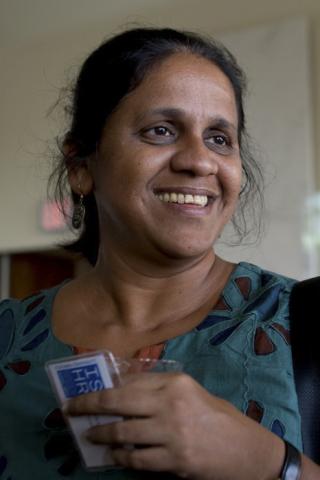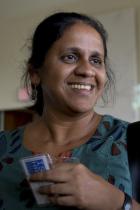Hasina Khan

India, 2011
Secretary-General, Awaaz-e-Niswaan
For Hasina Khan, the pursuit of human rights developed from personal experience. She was born into a family and community that valued religion and traditional conservatism. As the fourth daughter in a very traditionally conservative family, she explains, “I was the first woman educated and the first non-believer in compulsory marriage for women. The traditional family demands marriage for women and does not accept a non-heterosexual person.” In rejecting these norms, she has had to separate herself from her family and her community, forcing her to fend for herself in order to pursue a full education and a more free life. Khan found strength and support in the grassroots women’s rights movement more than 20 years ago, especially at the organization Awaaz-e-Niswaan (Voices of Women). “Through Awaaz, I met and saw lots of women with similar experiences and in similar situations as my own.” Since then, Khan has been working with women who struggle with the traditional and religious norms that do not welcome them. “People have the freedom to take a stand and say that this is my choice,” Khan says. “If you are aware but silent this is problematic because the laws will not change.” While change has been slow, she readily speaks about the lessons her career in human rights has taught her. “It’s not magic that happens and makes change,” she says. “I expect not for today, but for tomorrow.” As a testament to her words, she explains that her nieces are talking openly to her and looking to her for guidance in their own challenges. Her community has also recognized the success she has achieved in her career. “They look to me now because of my awareness and successes. I continue my work for them and other women. I can’t jump in to say the traditional family and laws are not correct, but I can make the choice and help other women to make theirs.”






